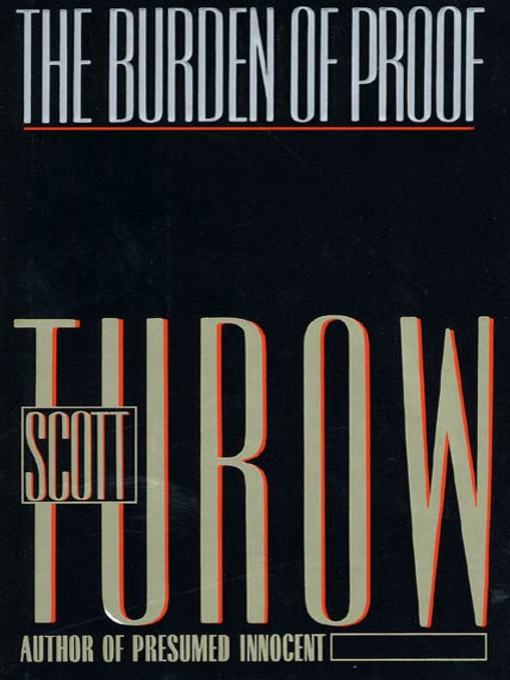In The Burden of Proof, Scott Turow probes the fascinating and complex character of Alejandro Stern as he tries to uncover the truth about his wife's life.
Late one spring afternoon, Alejandro Stern, the brilliant defense lawyer from Presumed Innocent, comes home from a business trip to find that Clara, his wife of thirty years, has committed suicide.
- Available now
- New eBook additions
- New kids additions
- New teen additions
- Most popular
- Try something different
- See all ebooks collections
- New audiobook additions
- Available now
- Always Available Audiobooks
- New kids additions
- New teen additions
- Most popular
- Try something different
- See all audiobooks collections
- Always Available--Everyone Reads Collection for Adults
- Always Available Classics for All Ages
- Spanish Collection
- Chinese Collection
- Marvel Comics
- Library & Information Science Professional Development Resources
- Author Interviews!
- See all featured collections collections


